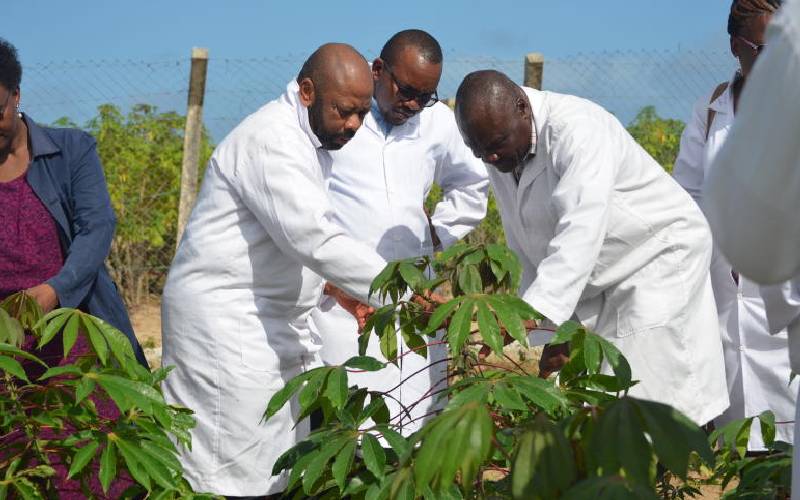×
The Standard e-Paper
Home To Bold Columnists

Stakeholders tour a trial field of Genetically Modified cassavas at KALRO Mtwapa. [File, Standard]
Kenya is planning to approve the cultivation of genetically modified (GMO) cassava in a bid to improve food security.